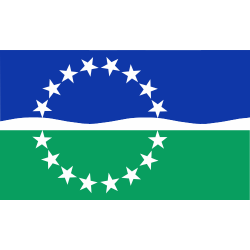
In the Hampton Roads area of Virginia, there is a need for healthcare workers at all levels. The region is home to ten community colleges and vocational schools with nursing programs, including Thomas Nelson Community College and Virginia Beach School of Practical Nursing. Vocational schools provide a rapid and cost-effective launching pad for both certified nursing assistants (CNAs) and licensed practical nurses (LPNs).
CNAs provide the most basic level of care for patients. They are required to complete a short certificate program which provides an introduction to the nursing field, and they must pass a state certification exam in order to gain licensure.
LPN certificate programs require a lengthier time commitment, usually 12 to 18 months. They offer in-depth study to develop leadership skills, basic science knowledge, hands-on medical training, and exposure to current medical and social issues. Virginia’s aspiring LPNs must successfully pass the NCLEX-PN national licensure exam before practicing.
Four-year institutions focus their nursing education on the registered nurse (RN) role. Virginia’s aspiring RNs can pursue one of four educational pathways: hospital diploma, two-year associate degree in nursing (ADN), four-year bachelor of science in nursing (BSN), or direct-entry mater of science in nursing (MSN). All candidates must successfully pass the NCLEX-RN national licensure exam before practicing.
The Hampton Roads area has several colleges and universities with accredited nursing programs, including Old Dominion University, two campuses of Hampton University, and both the Newport News and Virginia Beach campuses of ECPI University. Graduates can pursue employment with the area’s reputable hospitals and healthcare facilities, such as the nationally ranked Sentara Norfolk General Hospital. Other top-tier local hospitals include Sentara Virginia Beach General Hospital and Chesapeake General Hospital.
2024 NURSING SCHOOL RANKINGS
For our 2024 rankings, the research team at Nursing Schools Almanac collected data on nearly 3,000 nursing schools and campuses throughout the United States. We evaluated each school on three dimensions:
- The institution’s academic prestige and perceived value
- The breadth and depth of nursing programs offered
- Student success, particularly on the NCLEX licensure examination
We then combined these assessments into an overall score and ranked the schools accordingly. For a detailed description of our assessment methodology and dimension weights, please see here.

#1: Old Dominion University
The School of Nursing is the largest of five professional schools in ODU’s College of Health Sciences. In addition to BSN, MSN, DNP, and graduate certificate programs, the school offers a unique concurrent enrollment option. This pathway enables qualified students to complete associate of applied science (AAS) requirements, take the NCLEX-RN exam, and then earn the BSN degree with just one or two additional semesters of study. ODU’s prelicensure BSN graduates have consistently earned high marks on the NCLEX-RN exam, with 89% passing on the first attempt over the last decade.

#2: Sentara College of Health Sciences
Sentara College of Health Sciences offers a master’s entry to nursing practice (MENP) pathway, one of only two such programs in the state of Virginia that allow students with a non-nursing baccalaureate degree to enter nursing practice at the master’s degree level. The college also offers two pathways to the BSN degree: a traditional prelicensure program and an RN-to-BSN degree completion program. Since its launch, the traditional BSN has an excellent track record of student success. Graduates have scored a stellar 93% first-time pass rate on the NCLEX licensure exam, including a perfect 100% pass rate in 2018. The 30-credit-hour RN-to-BSN program opened in 2010 and has a current enrollment of around 300 students.
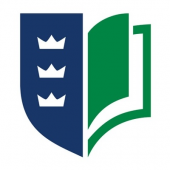
#3: Regent University
Regent University was founded in 1978 by televangelist M.G. “Pat” Robertson. The school serves 11,000 students across more than 150 programs leading to an undergraduate or graduate degree. The nursing programs at Regent University are accredited by the Commission on Collegiate Nursing Education. Students can pursue an RN-to-BSN degree completion pathway or an MSN degree with four specializations. The RN-to-BSN program is 120 credit hours in length, including 45 practice immersion hours in community and public health nursing, health assessment, and nursing leadership and management. Graduates are prepared for advancement opportunities in their current careers. The MSN program offers specializations in nurse educator, nurse leadership and management, adult-gerontology clinical nurse specialist, and psychiatric-mental health nurse practitioner. Graduates are prepared for senior and leadership positions in a broad array of healthcare settings.
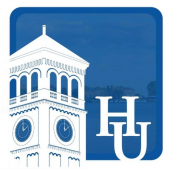
#4: Hampton University
Hampton University is one of the country’s top historically black universities, with students representing 49 states and 35 territories and nations. The School of Nursing is home to the first baccalaureate and oldest continuous nursing program in the Commonwealth of Virginia. Undergraduates can pursue several BSN pathways including traditional prelicensure, accelerated second degree, LPN-to-BSN bridge, and RN-to-BSN degree completion. Students in the school’s prelicensure pathways have scored a 95% first-time pass rate on the NCLEX licensure examination over the past four years. Graduate nursing students can pursue an MSN, DNP, or PhD degree. The DNP program is delivered in a 100% online platform with three campus residency sessions.
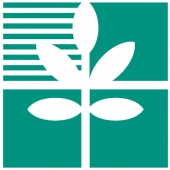
#5: Riverside College of Health Careers
Riverside College of Health Careers offers an AAS degree in professional nursing and a diploma in licensed practical nursing. Both programs feature a traditional day division as well as an evening / weekend division for working students. Through Riverside Medical Group, the school boasts close affiliations with a vast network of hospitals, primary care practices, women’s health practices, and retirement communities. Riverside students perform very well on their licensure tests: over the past decade, the school has posted a 91% first-time pass rate on the NCLEX-RN exam and an 89% first-time pass rate on the NCLEX-PN exam. Recent graduates of the professional nursing program have also enjoyed a 92% or higher job placement rate in the field. Riverside’s concurrent enrollment program with Old Dominion University provides an additional pathway for aspiring RNs who seek a baccalaureate nursing degree.
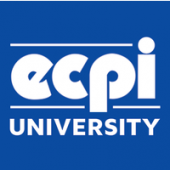
#6: ECPI University
ECPI University graduates more new nurses each year than any other Virginia school. The university’s College of Nursing offers an LPN certificate and an associate degree in nursing at five convenient Virginia locations: Newport News, Northern Virginia, Richmond, Roanoke, and Virginia Beach. Three campuses (Northern Virginia, Richmond, Virginia Beach) also host a prelicensure BSN program, while Newport News conducts an online RN-to-BSN degree completion program. Across its Virginia campuses, ECPI University graduates 300-400 LPN candidates and more than 400 ADN candidates annually. These students have posted an 84% NCLEX-PN pass rate and an 82% NCLEX-RN pass rate, respectively, over the past decade. Graduates from the class of 2020 posted even stronger pass rates: 89% on the NCLEX-PN exam and 87% on the NCLEX-RN exam.
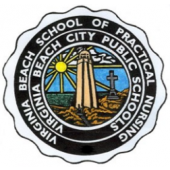
#7: Virginia Beach School of Practical Nursing
Virginia Beach School of Practical Nursing offers an 18-month LPN curriculum that provides students the opportunity to earn CNA certification after the first nine months. Students learn in the school’s state-of-the-art laboratory and conduct clinical experiences at local hospitals. The highly competitive program graduates a small cohort of 12-15 students annually. Over the past decade, these graduates have scored an amazing 99% first-time pass rate on the NCLEX-PN licensure examination, including eight consecutive years with a perfect pass rate.
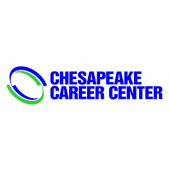
#8: Chesapeake Career Center
Established in 1967, Chesapeake Career Center is the oldest technical and career school in the Commonwealth. The center serves all seven high schools in Chesapeake with programs ranging from cosmetology to healthcare. The practical nursing program begins in the student’s senior year of high school. After completing the first two semesters, the student earns three high school credits and progresses to more advanced coursework on growth and development, medical-surgical nursing, and drug therapies. Graduates earn a practical nursing diploma as well as 16 credits towards the RN degree at Tidewater Community College or Norfolk State University. Chesapeake Career Center graduates a select cohort of 5-10 LPN students annually. They are very well prepared for the NCLEX-PN licensure exam, boasting a 92% first-time pass rate over the past decade.
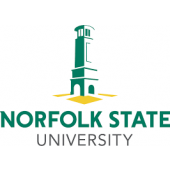
#9: Norfolk State University
The College of Science, Engineering and Technology at Norfolk State University houses the Department of Nursing and Allied Health, which has been in existence for more than sixty years. The department offers both a prelicensure BSN and an online RN-to-BSN program. During their studies, prelicensure BSN students can spend 6-12 hours per day in the simulation lab and at healthcare facilities such as Chesapeake Regional Medical Center, Children’s Hospital of The King’s Daughters, and Hampton VA Medical Center. Many students are offered fulltime positions at these facilities after graduating and passing the NCLEX-RN licensure exam. Norfolk State University graduates approximately 25 prelicensure BSN students each year, with an 84% first-time NCLEX pass rate over the past decade. The university’s RN-to-BSN program is designed for diploma- or ADN-prepared registered nurses. Graduates are qualified to seek higher-level positions in a broad range of healthcare environments.
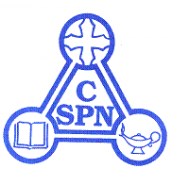
#10: Central School of Practical Nursing
The Central School of Practical Nursing at Norfolk Technical Center is approved by the Virginia Board of Nursing and accredited by the Accreditation Commission for Education in Nursing. This LPN program covers two nine-month periods. Level I, the first nine months, allows the student to take the test to become a certified nursing assistant after 368.5 hours of nursing theory and 126.5 clinical hours. Level II, the second nine months, requires an additional 498 hours of nursing theory and 499 clinical hours. Upon completion of the entire program, graduates are eligible to sit for the NCLEX-PN licensure examination. The Central School of Practical Nursing graduates a small cohort of 10-20 LPN students annually. These graduates have maintained a perfect 100% first-time NCLEX pass rate every year since 2018.
